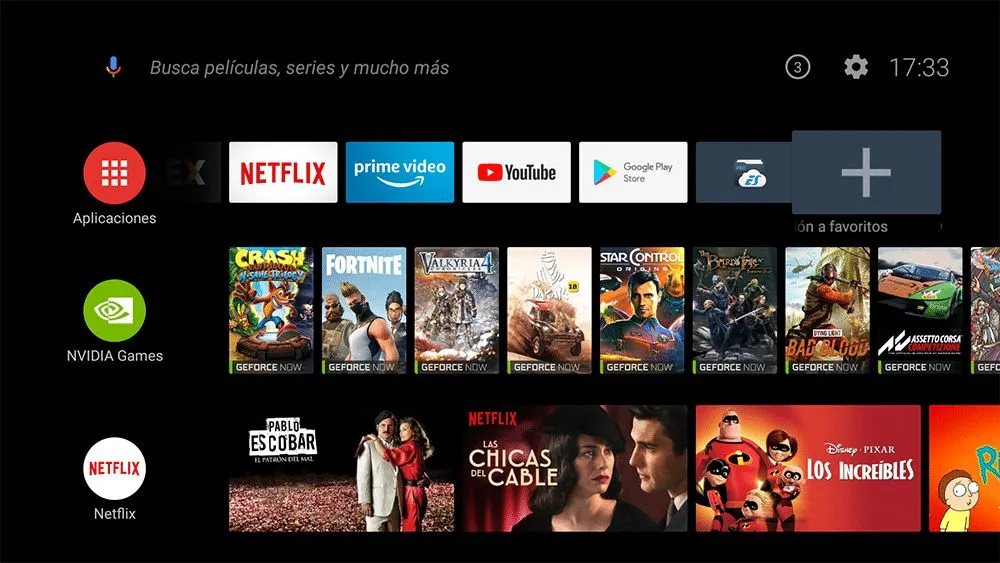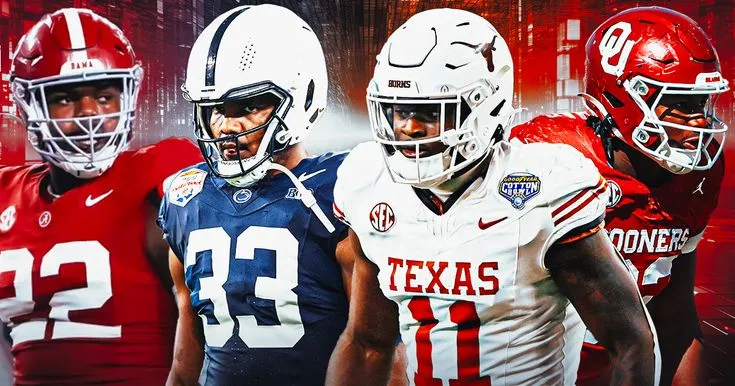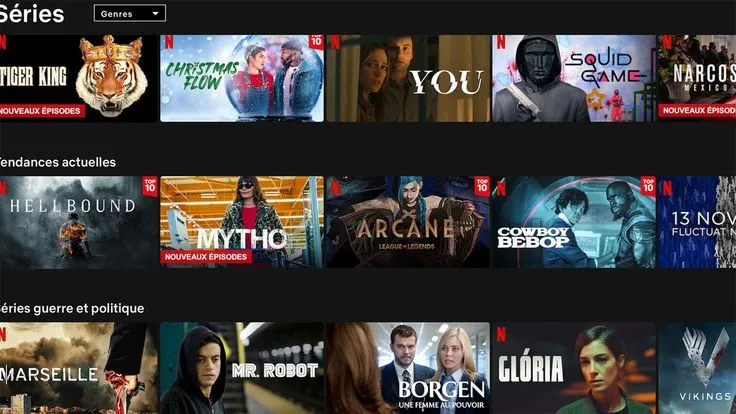TV Series of All Time
Most Popular TV Series of All Time Television has revolutionized entertainment, creating cultural phenomena that transcend generations and geographical boundaries. When we talk about the most popular TV series of all time, we’re discussing shows that have captivated millions of viewers worldwide, influenced pop culture, and left an indelible mark on the entertainment industry. These popular TV shows have become more than just entertainment—they’ve become shared experiences that bring people together across different walks of life.
From groundbreaking dramas to laugh-out-loud comedies, the top 10 most popular TV series have shaped our collective consciousness and continue to attract new audiences through streaming platforms and reruns. In this comprehensive guide, we’ll explore the television shows that have achieved legendary status, examining what makes them so beloved and why they continue to resonate with audiences decades after their original broadcasts.
What Makes a TV Series Truly Popular?
Before diving into our list of the most popular TV series, it’s essential to understand what elevates a show from merely successful to genuinely iconic. Several factors contribute to a series’ enduring popularity:
Cultural Impact and Relevance The greatest TV series often reflect or shape societal conversations. They tackle important themes, challenge conventions, or provide commentary on contemporary issues that resonate with viewers long after the credits roll.
Memorable Characters and Storytelling Popular TV shows feature characters that feel authentic and relatable, even in extraordinary circumstances. These characters become part of our cultural lexicon, referenced in everyday conversations and inspiring countless memes and discussions.
Production Quality and Innovation The most popular TV series often push boundaries in terms of production value, cinematography, writing, and acting. They set new standards for what television can achieve as an artistic medium.
Longevity and Rewatchability Truly popular TV series maintain their appeal across multiple viewings and continue to attract new audiences years or even decades after their conclusion.
The Golden Age of Television: Setting the Stage
The landscape of television has evolved dramatically since the medium’s inception. From the early days of black-and-white broadcasts to today’s high-definition streaming content, TV series have consistently pushed creative boundaries and captured global audiences.
The concept of “appointment television” emerged in the 1980s and 1990s, when families would gather around their television sets to watch their favorite shows together. This shared viewing experience created a sense of community and cultural unity that many of today’s most popular TV series continue to evoke, even in our increasingly fragmented media landscape.
Modern streaming platforms have revolutionized how we consume television content, allowing viewers to binge-watch entire seasons and discover older series that may have been overlooked during their original run. This accessibility has given new life to classic shows while creating opportunities for contemporary series to achieve unprecedented popularity.
For those seeking the ultimate viewing experience, platforms like TiviBridge have emerged as one of the best IPTV providers, offering top-rated streaming services that deliver high-quality content to audiences worldwide in May 2025.
Top 10 Most Popular TV Series of All Time
1. Friends (1994-2004)
No discussion of popular TV series would be complete without mentioning “Friends.” This beloved sitcom followed six friends navigating life, love, and careers in New York City. The show’s universal themes of friendship, romance, and personal growth resonated with audiences across different cultures and generations.
Why It Remains Popular:
- Timeless humor that transcends generational gaps
- Relatable characters facing everyday challenges
- Quotable dialogue that has become part of popular culture
- Strong ensemble cast chemistry
- Comfort viewing that provides emotional familiarity
The series continues to attract new fans through streaming platforms, proving that quality storytelling and authentic character relationships never go out of style. Its influence on fashion, language, and social dynamics remains evident in contemporary culture.
2. Game of Thrones (2011-2019)
“Game of Thrones” redefined what television could achieve in terms of scope, budget, and cultural impact. This epic fantasy series brought cinematic production values to the small screen, creating a global phenomenon that dominated social media conversations and water cooler discussions.
Key Success Factors:
- Unprecedented production scale and visual effects
- Complex character development and moral ambiguity
- Intricate plotlines that kept viewers engaged
- Strong performances from an ensemble cast
- Cultural events surrounding each episode release
Despite its controversial final season, “Game of Thrones” remains one of the most popular TV series ever created, demonstrating television’s power to create shared cultural experiences on a global scale.
3. The Office (2005-2013)
“The Office” transformed workplace comedy by introducing a mockumentary style that felt authentic and relatable. The show’s unique approach to humor, combined with its exploration of workplace relationships and personal growth, created a devoted fanbase that continues to grow.
Enduring Appeal Elements:
- Realistic workplace scenarios that viewers recognize
- Character development that spans multiple seasons
- Subtle humor that rewards careful viewing
- Emotional depth beneath comedic surface
- Memorable quotes and scenes that become cultural touchstones
The series has found new life on streaming platforms, where younger audiences have discovered its charm and wit, proving that authentic storytelling transcends generational boundaries.
4. Breaking Bad (2008-2013)
“Breaking Bad” elevated television drama to new heights with its meticulous storytelling, character development, and moral complexity. The series followed a high school chemistry teacher’s transformation into a methamphetamine manufacturer, exploring themes of morality, family, and consequences.
Critical Success Elements:
- Exceptional writing that maintained quality throughout its run
- Outstanding performances, particularly from Bryan Cranston
- Visual storytelling that enhanced narrative impact
- Moral complexity that challenged viewer assumptions
- Satisfying conclusion that tied up all storylines
The show’s influence on subsequent television dramas cannot be overstated, setting new standards for character-driven storytelling and narrative complexity.
5. The Simpsons (1989-Present)
As the longest-running American sitcom, “The Simpsons” has achieved remarkable longevity while maintaining cultural relevance. This animated series has become a cultural institution, influencing comedy, animation, and social commentary for over three decades.
Longevity Factors:
- Satirical content that remains relevant across different eras
- Memorable characters that represent universal archetypes
- Ability to adapt and evolve with changing times
- Cultural predictions that have proven remarkably accurate
- Multi-generational appeal that spans different age groups
The series continues to attract viewers worldwide, demonstrating the power of well-crafted animation and intelligent humor to create lasting entertainment.
6. Stranger Things (2016-2022)
“Stranger Things” captured the zeitgeist by combining 1980s nostalgia with supernatural horror and coming-of-age themes. The series became a cultural phenomenon, influencing fashion, music, and popular culture while attracting viewers across different age demographics.
Success Components:
- Nostalgic elements that appeal to multiple generations
- Strong young cast delivering authentic performances
- Expertly crafted blend of horror, sci-fi, and drama
- Compelling mystery elements that encourage binge-watching
- Visual style that pays homage to 1980s aesthetic
The show’s ability to balance nostalgia with contemporary storytelling techniques has made it one of the most popular TV series of the streaming era.
7. Seinfeld (1989-1998)
“Seinfeld” revolutionized sitcom television by focusing on the minutiae of everyday life rather than traditional family or workplace dynamics. The show’s “show about nothing” concept proved that exceptional writing and character chemistry could create compelling television from the most mundane situations.
Looking for Premium Channels, Sports, and 4K Streaming?
Don’t miss out on these top-rated IPTV services – all at unbeatable prices!
🔥 TiviBridge – Ideal for sports lovers & international content
🎬 Iptvbridge – Perfect for live TV, movies & entertainment
💰 TiviPlanet – Best value for budget-conscious streamers
🚀 Start Your IPTV Business Today!
Get instant access to a powerful Reseller IPTV Panel with competitive pricing, advanced features, and 24/7 support. Join TiviBridge and grow your own IPTV empire with ease!
👉 Start your FREE trial now and elevate your viewing experience with seamless, high-quality streaming!
Revolutionary Aspects:
- Unique approach to comedy that influenced countless subsequent shows
- Characters who remained consistent rather than learning life lessons
- Observational humor that highlighted everyday absurdities
- Cultural impact that extended far beyond entertainment
- Quotable dialogue that became part of common language
The series continues to influence comedy writers and remains popular with audiences who appreciate its unique perspective on human behavior and social interaction.
8. Lost (2004-2010)
“Lost” demonstrated television’s potential for complex, serialized storytelling that kept viewers engaged through mysteries, character development, and philosophical themes. The series created a devoted fanbase that analyzed every detail and theory.
Innovative Elements:
- Complex narrative structure that challenged traditional storytelling
- Character-driven flashbacks that revealed motivations and backstories
- Philosophical and spiritual themes that encouraged deep thinking
- Mystery elements that kept viewers speculating
- Strong ensemble cast with diverse backgrounds
Despite its divisive finale, “Lost” remains influential in how television approaches complex narratives and audience engagement.
9. The Sopranos (1999-2007)
“The Sopranos” is often credited with ushering in the modern era of prestige television. This HBO drama elevated the medium by combining cinematic production values with deep character exploration and psychological complexity.
Groundbreaking Features:
- Psychological depth that explored character motivations
- Cinematic production quality that rivaled feature films
- Complex moral themes that challenged viewer assumptions
- Outstanding performances from the entire cast
- Cultural impact that influenced subsequent television dramas
The series demonstrated that television could achieve the same artistic heights as cinema, paving the way for the current golden age of television.
10. Cheers (1982-1993)
“Cheers” created a template for successful ensemble comedy that many subsequent shows have tried to replicate. Set in a Boston bar, the series proved that a single location could serve as the backdrop for compelling character development and storytelling.
Enduring Success Factors:
- Strong ensemble cast with excellent chemistry
- Consistent writing quality throughout its eleven-season run
- Memorable characters that felt like real people
- Workplace setting that allowed for diverse storylines
- Cultural impact that extended beyond entertainment
The show’s influence on workplace comedies and ensemble sitcoms continues to be felt in contemporary television.
The Evolution of Popular TV Series
Television has undergone tremendous changes since the early days of broadcasting. The most popular TV series have evolved alongside technological advances, changing viewer habits, and shifting cultural expectations.
From Broadcast to Streaming The transition from traditional broadcast television to streaming platforms has fundamentally changed how audiences discover and consume popular TV shows. Binge-watching has become the norm, allowing viewers to immerse themselves fully in complex narratives and character development.
International Influence Today’s most popular TV series often achieve global success, with shows like “Squid Game,” “Money Heist,” and “Dark” proving that quality storytelling transcends language barriers. This international perspective has enriched the television landscape and introduced audiences to diverse cultural perspectives.
Production Value Evolution Modern TV series often rival feature films in terms of production quality, special effects, and cinematography. This elevation in production standards has attracted top-tier talent and increased audience expectations for visual storytelling.
Impact of Streaming on TV Series Popularity
The rise of streaming platforms has democratized television consumption, allowing viewers to discover older series and binge-watch entire seasons at their own pace. This shift has given new life to classic shows while creating opportunities for contemporary series to achieve unprecedented popularity.
Accessibility and Discovery Streaming platforms have made it easier for audiences to discover both classic and contemporary popular TV series. Recommendation algorithms help viewers find shows that match their preferences, while the ability to watch entire seasons consecutively has changed how stories are told and consumed.
Global Reach Streaming services have enabled TV series to achieve global popularity more quickly than ever before. Shows can now reach international audiences simultaneously, creating worldwide cultural phenomena that transcend geographical boundaries.
Revival and Continuation Many beloved series have found new life through streaming platforms, either through revival seasons or by attracting new audiences to classic shows. This has extended the lifespan of popular TV series and created opportunities for creators to revisit successful properties.
Cultural Impact of Popular TV Series
The most popular TV series of all time have left lasting impressions on popular culture, influencing fashion, language, social behavior, and even political discourse. These shows become more than entertainment—they become cultural touchstones that define generations and create shared experiences.
Language and Communication Popular TV shows often introduce phrases, expressions, and references that become part of everyday language. From “How you doin’?” to “Winter is coming,” these series create linguistic shortcuts that instantly communicate complex ideas or emotions.
Fashion and Lifestyle Trends Television has always influenced fashion and lifestyle choices, with popular TV series often setting trends that extend far beyond the screen. Characters’ wardrobes, hairstyles, and lifestyle choices frequently inspire real-world fashion movements.
Social Commentary and Awareness Many of the most popular TV series tackle important social issues, raising awareness and encouraging dialogue about topics ranging from mental health to social justice. These shows often serve as catalysts for broader cultural conversations.
The Psychology Behind TV Series Popularity
Understanding why certain TV series achieve massive popularity requires examining the psychological factors that drive viewer engagement and loyalty. Several key elements contribute to a show’s ability to capture and maintain audience attention.
Emotional Connection The most popular TV series create strong emotional connections between viewers and characters. These connections make audiences invested in character outcomes and motivate continued viewing across multiple seasons.
Escapism and Comfort Television provides an escape from daily stresses and challenges. Popular TV shows often serve as comfort viewing, offering familiar characters and situations that provide emotional stability and relaxation.
Social Bonding Watching popular TV series creates opportunities for social connection, whether through shared viewing experiences, online discussions, or water cooler conversations. These shows become conversation starters and bonding opportunities.
Predictability and Surprise Successful series strike a balance between predictable elements that provide comfort and surprising developments that maintain interest. This balance keeps viewers engaged while providing the security of familiar characters and settings.
Technology’s Role in Shaping Popular TV Series
Technological advances have continuously shaped how TV series are produced, distributed, and consumed. From the early days of black-and-white broadcasts to today’s high-definition streaming content, technology has enabled creators to tell more compelling stories and reach broader audiences.
Production Technology Advances in camera technology, special effects, and post-production tools have enabled creators to produce more visually stunning and technically sophisticated content. These improvements have raised the bar for production quality and audience expectations.
Distribution Platforms The evolution from broadcast networks to cable channels to streaming platforms has fundamentally changed how popular TV series reach audiences. Each technological shift has created new opportunities for content creators and changed viewer consumption patterns.
Interactive Features Modern streaming platforms offer interactive features that enhance the viewing experience, from behind-the-scenes content to cast interviews and related recommendations. These features deepen audience engagement and create more immersive entertainment experiences.
Future Trends in TV Series Popularity
As we look toward the future, several trends are likely to shape what constitutes popular TV series in the coming years. Understanding these trends helps predict which types of shows will capture audience attention and achieve lasting success.
Personalization and AI Artificial intelligence and machine learning are increasingly being used to personalize content recommendations and even influence content creation. This technology may lead to more targeted and relevant programming that resonates with specific audience segments.
Interactive and Immersive Content Virtual reality, augmented reality, and interactive storytelling technologies are beginning to influence television production. These innovations may create new forms of popular entertainment that blur the lines between passive viewing and active participation.
Global Collaboration International co-productions and collaborations are becoming more common, creating opportunities for shows to achieve global popularity from their inception. This trend toward international cooperation may lead to more diverse and culturally rich content.
Shorter Attention Spans As attention spans continue to decrease, popular TV series may need to adapt their storytelling techniques to maintain audience engagement. This might lead to more concise storytelling, faster pacing, or innovative narrative structures.
Measuring TV Series Popularity in the Digital Age
Determining which TV series are truly the most popular has become more complex in the digital age. Traditional metrics like television ratings no longer tell the complete story, as audiences consume content across multiple platforms and devices.
Streaming Metrics Streaming platforms use various metrics to measure popularity, including total viewing hours, completion rates, and subscriber acquisition. However, these platforms often keep detailed viewership data private, making it challenging to compare popularity across different services.
Social Media Engagement Social media activity has become an important indicator of TV series popularity. Shows that generate significant discussion, memes, and fan content on platforms like Twitter, Instagram, and TikTok often achieve broader cultural impact.
Cultural Penetration True popularity extends beyond viewership numbers to include cultural penetration—how deeply a show influences language, fashion, behavior, and social discourse. The most popular TV series become part of the cultural conversation in ways that transcend their original medium.
Longevity and Rewatchability Popular TV series often maintain their appeal long after their original run, continuing to attract new viewers and retain existing fans through reruns and streaming availability. This longevity is a key indicator of lasting popularity.
Frequently Asked Questions
What makes a TV series popular across different generations? Popular TV series that appeal to multiple generations typically feature universal themes, relatable characters, and timeless storytelling elements. Shows like “Friends” and “The Simpsons” succeed because they address fundamental human experiences that resonate regardless of age. Quality writing, memorable characters, and the ability to balance nostalgia with contemporary relevance are key factors in cross-generational appeal.
How do streaming platforms determine which TV series are most popular? Streaming platforms use various metrics including total viewing hours, completion rates, subscriber acquisition, and engagement levels. They also consider factors like how quickly viewers binge-watch series, how often they rewatch episodes, and whether shows drive new subscriptions. Social media buzz and critical reception also influence popularity rankings on these platforms.
Why do some TV series remain popular decades after they ended? TV series maintain long-term popularity through several factors: exceptional storytelling that transcends its original time period, universal themes that remain relevant, memorable characters that feel timeless, and availability on modern streaming platforms that introduce shows to new audiences. Quality production values and cultural impact also contribute to sustained popularity.
What role does international success play in determining the most popular TV series? International success has become increasingly important in determining overall popularity. Shows that achieve global recognition often have broader cultural impact and larger total audiences. Streaming platforms have made it easier for series to reach international audiences, and shows that succeed globally often influence television production trends worldwide.
How has binge-watching changed what makes a TV series popular? Binge-watching has shifted focus toward series with compelling storylines that encourage continuous viewing. Popular shows now often feature more serialized storytelling, cliffhangers between episodes, and complex narratives that reward dedicated viewing. This viewing pattern has also increased the importance of strong season-long arcs and character development.
Do popular TV series need to address current social issues to remain relevant? While addressing social issues can enhance relevance, the most enduringly popular TV series balance contemporary concerns with timeless themes. Shows that focus too heavily on specific current events may date quickly, while those that explore universal human experiences through a contemporary lens tend to maintain broader appeal across different time periods.
Conclusion: The Enduring Power of Great Television
The most popular TV series of all time share common characteristics that transcend their specific genres, time periods, or cultural contexts. These shows succeed because they combine exceptional storytelling with memorable characters, production quality, and cultural relevance that resonates with audiences across different demographics and generations.
From the workplace comedy of “The Office” to the epic fantasy of “Game of Thrones,” these popular TV shows have shaped our cultural landscape and continue to influence how we think about television as an art form. They’ve created shared experiences that bring people together, sparked countless conversations, and left lasting impressions on popular culture.
The evolution of television technology and distribution methods has made it easier than ever for audiences to discover and enjoy both classic and contemporary series. Streaming platforms have democratized access to content while creating new opportunities for shows to achieve global popularity and cultural impact.
As we move forward, the definition of popular TV series will continue to evolve with changing technology, viewing habits, and cultural expectations. However, the fundamental elements that make television compelling—great storytelling, authentic characters, and emotional resonance—will remain constant.
The extraordinary success of these top 10 most popular TV series demonstrates television’s unique power to entertain, enlighten, and unite audiences around shared experiences. Whether you’re discovering these shows for the first time or revisiting old favorites, each offers something special that explains their enduring popularity and cultural significance.
What makes your favorite TV series special? Share your thoughts about which shows deserve recognition as the most popular of all time, and discover new favorites that might become the next generation of television classics. The golden age of television continues, and the next great popular TV series might be just one streaming session away.











